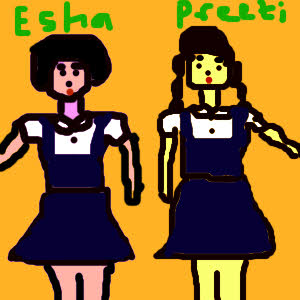What do you feel is the most exciting part of being an archaeologist?
I love the sense of making new discoveries about the past, but more so, filling in gaps in our knowledge about human evolution and how it worked.
Quite a few of your projects, I understand, have been in India. Could you tell us a little about these projects?
I have been working in India for 23 years now! I was originally invited to visit Palaeolithic (Old Stone Age) archaeological sites through a kind invitation by Prof. Paddayya of Deccan College (Pune).
Since that time, I have conducted many projects in cooperation and collaboration with colleagues from several Indian universities. I have conducted field work in Karnataka, Andhra Pradesh and Madhya Pradesh. I am interested in documenting the timing and paths of early human migrations from Africa to India, and how these populations dealt with changes in environments and fluctuations of the monsoon through time. My research has included the study of the economic and social behaviour of early humans living in India about one million years ago and the examination of how Indian populations coped with the devastating effects of the Toba volcanic super-eruption about 74,000 years ago.
Talking of India again and the work you have done here, we would love to hear what your thoughts are on the archeological and cultural heritage of India. Also, do you feel these have been explored enough?
The archaeological record of India is phenomenal and it rivals other regions on account of its richness and cultural variety. India has a long record of Palaeolithic settlement and it has some of the most diverse Neolithic economies in Asia.
I often promote and advertise the importance of Indian prehistory to professional colleagues as well as to the general public. Unfortunately, and for a variety of reasons, the cultural heritage of India is not as well known internationally as it should be. Moreover, the archaeological record of India has not been explored as much as it should be, and excavations of sites have been rather limited. It is also sad that there has been so much destruction of India’s pre-historic record due to recent economic development.
I gather that the Oxford Centre for Asian Archaeology, Art and Culture was launched recently. Could you tell us what exactly this Centre will focus on in terms of research, particularly in India?
In November 2010, we officially launched the Oxford Centre for Asian Archaeology, Art & Culture. Our goal is to understand the earliest colonization of Asia (including India) and the development of cultures across Asia. We wish to understand how the distinctive cultures of each region in Asia developed, though at the same time we are trying to understand how each region was inter-connected in the past. Better understanding of how societies developed through time will provide us information that is relevant to the modern world and help answer questions surrounding the advantages and drawbacks of globalization. The Centre is developing joint field projects (including those mentioned in India and noted in websites here), assisting in scholarly and student exchanges, and promoting public awareness of the rich cultural legacy of Asia.
Finally, archaeology is a lot about revisiting the past and travelling back in time and trying to piece together things from a period we haven’t been in. Given that, how do you feel when you are through the thick of a project and when a project gets done?
Archaeology can be tedious and certainly reconstruction of the past requires a lot of hard work, diligence and patience. Field work in India can be challenging, and seeing information through to final publication can take years owing to the complex nature of interdisciplinary research and international collaborations. However, I find the process, from discovery to reporting, both intellectually stimulating and fun. Once I complete a project, I am usually energized and can’t wait to get onto the next!





